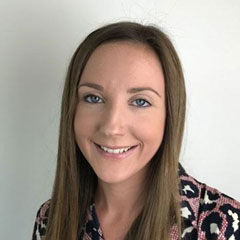Pip Hearty, Programme Manager – Research Fellow, Department of Health Sciences
Pip is a Research Fellow in the Mental Health and Addictions Research Group (MHARG) in the Department of Health Sciences.

She joined the Department in July 2023 to manage a four-year NIHR Programme Grant funded study evaluating the implementation of a Problem Support Mentor Scheme in prisons (AMICABLE Project).
Pip has over a decade’s worth of experience as a non-clinical academic exploring the health needs of prisoners and their associated health and social care needs pertaining to substance misuse, mental health, and wider health inequalities. She was awarded a PhD at the University of Leeds in 2019.
email: pip.hearty@york.ac.uk
Our 60-second interview with Pip:
Could you please tell us what work you do in the field of mental health?
I have worked on and managed numerous prison-based health research projects since starting to work in this field in 2012. I am currently the Programme Manager for a 4-year NIHR Programme Grant funded study called AMICABLE. This work aims to evaluate the implementation and impact of a Problem Support Mentor Scheme (PSMS) in prisons in the North East, North West and Yorkshire & Humber regions. It is hoped that the PSMS will lead to improvements in the mental health and wellbeing of imprisoned populations.
What do you find most rewarding and inspiring in this work?
I thoroughly enjoy working with like-minded researchers who are invested in improving the health and wellbeing of people in prison.
What is the most challenging or complicated aspect of this work?
Prisons are notoriously difficult environments to conduct research in. The main challenges mainly arise from ensuring that the research you plan to do fits in with and doesn’t pose any significant burden on the running of the regime at the prison – this can sometimes be a difficult act to balance.
What impact do you hope your work is having - or can potentially have?
People in prison experience higher levels of mental health problems, completed suicides, self-harm, and violent behaviour than people in the general population. I hope that the research that my colleagues and I undertake will ultimately lead to improved mental health and wellbeing amongst this disproportionately affected population.
Could you share with us one piece of advice that you follow for your own mental health?
Ensure to maintain a good work-life balance and spend as much time as possible outdoors, exploring new areas in this country and further afield.